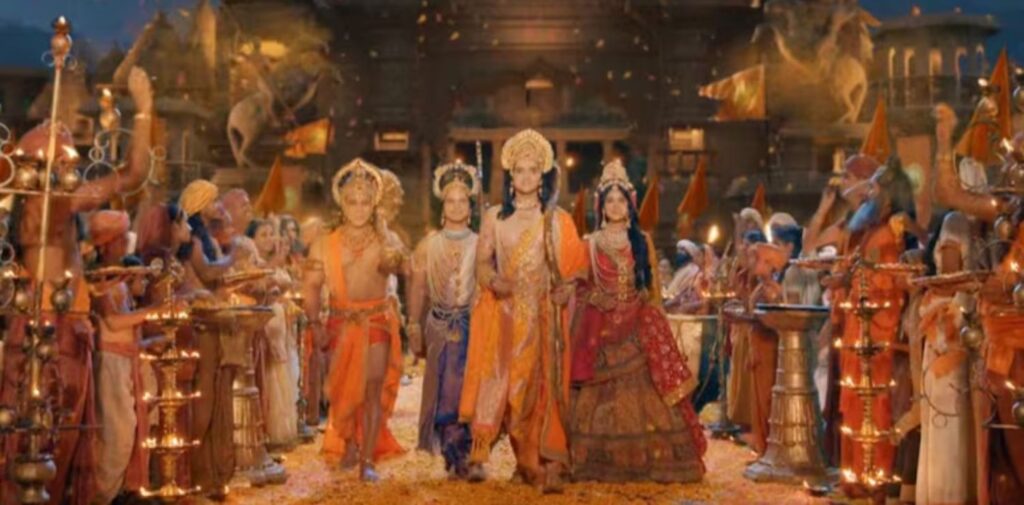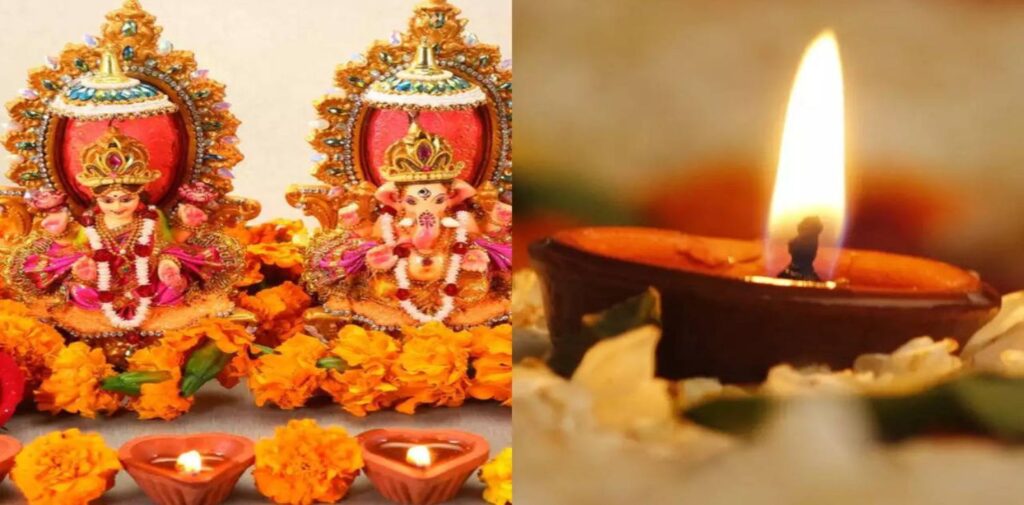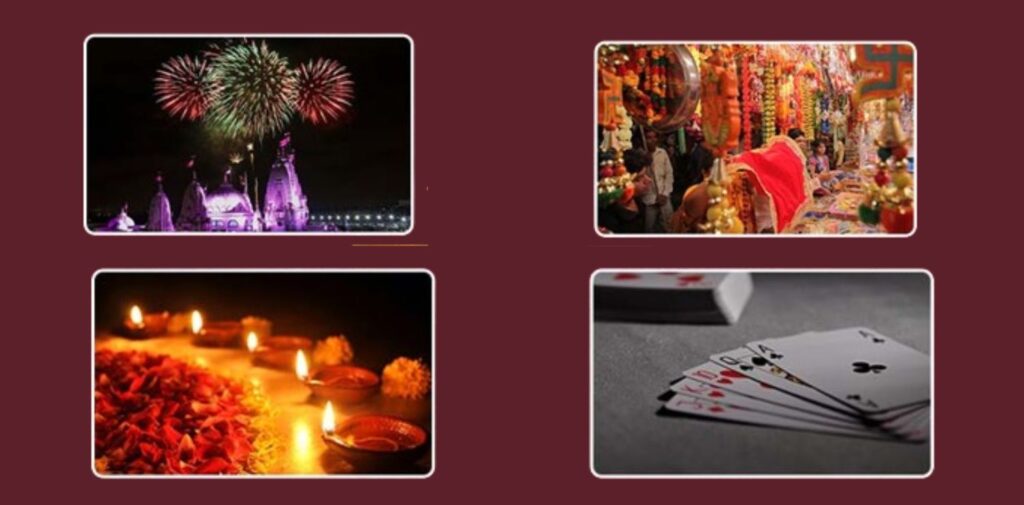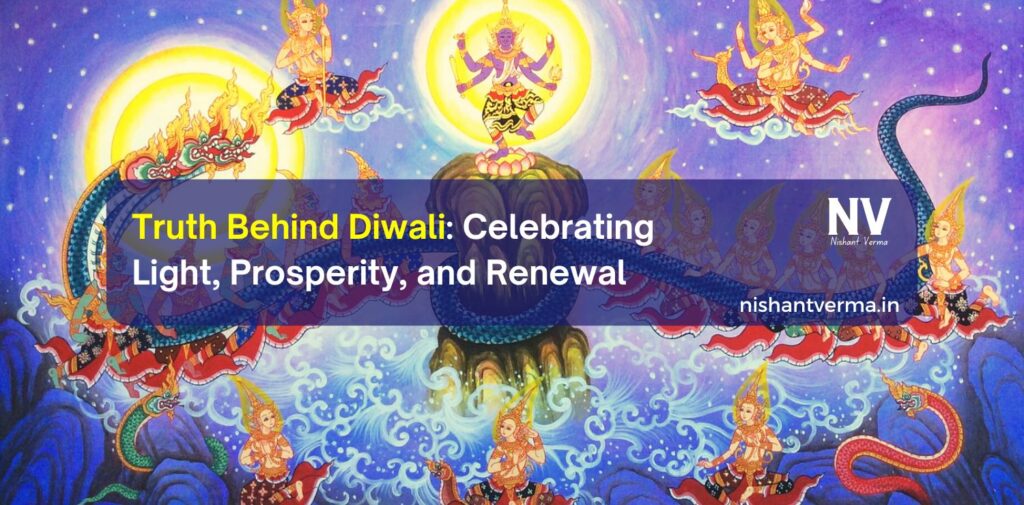Diwali, also known as the Festival of Lights, is one of the most significant festivals celebrated in Hinduism. Every year, millions of people across India and the world come together to light lamps, decorate their homes, share sweets, and partake in joyful celebrations. While many are familiar with the traditional stories surrounding Diwali, such as the return of Lord Rama to Ayodhya after defeating Ravana, there are deeper layers of meaning, especially regarding the worship of Goddess Lakshmi and Lord Ganesha. This article explores the origins and significance of Diwali, shedding light on the multifaceted beliefs and Truth Behind Diwali that make this festival so special.
Historical and Mythological Background: Truth Behind Diwali
The Return of Lord Rama
One of the most widely recognized reasons for celebrating Diwali is rooted in the Ramayana, the ancient Indian epic. It narrates the story of Lord Rama, who returns to his kingdom Ayodhya after 14 years of exile, during which he fought and defeated the demon king Ravana. The people of Ayodhya celebrated Rama’s return by lighting oil lamps, symbolizing the victory of light over darkness and good over evil. This tradition continues today, as families light diyas (lamps) in their homes to symbolize the triumph of good.

The Churning of the Ocean
While the story of Rama is central to Diwali, another important narrative involves the churning of the cosmic ocean, known as Samudra Manthan. According to Hindu mythology, this event was a collaborative effort between the gods and demons to obtain the nectar of immortality (amrita). During this churning, Goddess Lakshmi emerged from the ocean. She chose Lord Vishnu as her consort, and thus, her worship during Diwali is essential, as she embodies wealth, prosperity, and well-being.
The Birth of Lord Ganesha
In addition to worshiping Goddess Lakshmi, Diwali also honors Lord Ganesha, the elephant-headed god who represents wisdom, knowledge, and new beginnings. According to legend, Ganesha was created by Goddess Parvati from the dust of her body, infused with life. He is worshiped at the beginning of new ventures, making him an essential deity during Diwali. His presence signifies the removal of obstacles, ensuring that the new year is free from hindrances.
The Significance of Lakshmi Puja
- Lakshmi and Prosperity: Goddess Lakshmi is central to the Diwali celebration, particularly on the night of Lakshmi Puja, when devotees pray for her blessings of wealth and prosperity. The festival’s emphasis on cleaning and decorating homes is believed to welcome Lakshmi, as she is said to visit the cleanest and brightest places. Families prepare by illuminating their homes with lights and diyas, creating a welcoming environment.
- The Symbolism of Wealth and Abundance: Worshiping Lakshmi during Diwali symbolizes the desire for abundance—not only in material wealth but also in health, happiness, and harmony. This aligns with the broader philosophy of Hinduism, which sees wealth as a form of energy that can be harnessed for the greater good. By honoring Lakshmi, devotees express gratitude for the blessings they have received and seek her guidance for the future.

The Rituals of Diwali
- Preparations for the Festival: The lead-up to Diwali involves a series of rituals and preparations. In many households, cleaning and decorating become a priority, as it is believed that a clean home invites prosperity. People often purchase new clothes, utensils, and decorative items, signifying renewal and a fresh start.
- The Day of Diwali: On the main day of Diwali, families gather for Lakshmi Puja. This involves creating an altar adorned with images or idols of Lakshmi and Ganesha. Devotees offer flowers, fruits, sweets, and other items to the deities while chanting prayers and mantras. The evening culminates in lighting diyas, bursting fireworks, and sharing sweets with friends and family.
- Community Celebrations: Diwali is not just a family affair; it extends to the community. Many neighborhoods organize public celebrations, which include fairs, cultural performances, and communal prayers. These gatherings foster a sense of unity and joy, as people from diverse backgrounds come together to celebrate the spirit of the festival.

The Deeper Philosophical Meaning
- Light vs. Darkness: At its core, Diwali represents the eternal struggle between light and darkness, good and evil. This duality is reflected in the various stories associated with the festival. By lighting lamps, devotees symbolize their commitment to living in accordance with dharma (righteousness) and dispelling ignorance and negativity from their lives.
- Renewal and New Beginnings: Diwali also signifies renewal and the opportunity for new beginnings. The festival encourages individuals to reflect on their lives, let go of past grievances, and seek personal growth. This aspect resonates with the cyclical nature of life in Hindu philosophy, where every ending paves the way for a new beginning.
Conclusion: A Celebration of Unity and Joy
Diwali is a festival that transcends religious boundaries, embodying values of unity, compassion, and joy. While the tales of Lord Rama’s return, the emergence of Goddess Lakshmi, and the birth of Lord Ganesha are significant, the underlying themes of light, renewal, and prosperity are universal.
As families come together to celebrate Diwali, they not only honor their deities but also strengthen their bonds with one another and their communities. The festival serves as a reminder of the importance of compassion, generosity, and the continuous pursuit of knowledge and growth.
In a world often filled with darkness, Diwali shines as a beacon of hope, encouraging all to embrace the light within and share it with others. As we celebrate this beautiful festival, let us remember its deeper meanings and strive to embody the spirit of Diwali in our daily lives, spreading joy and positivity wherever we go.




